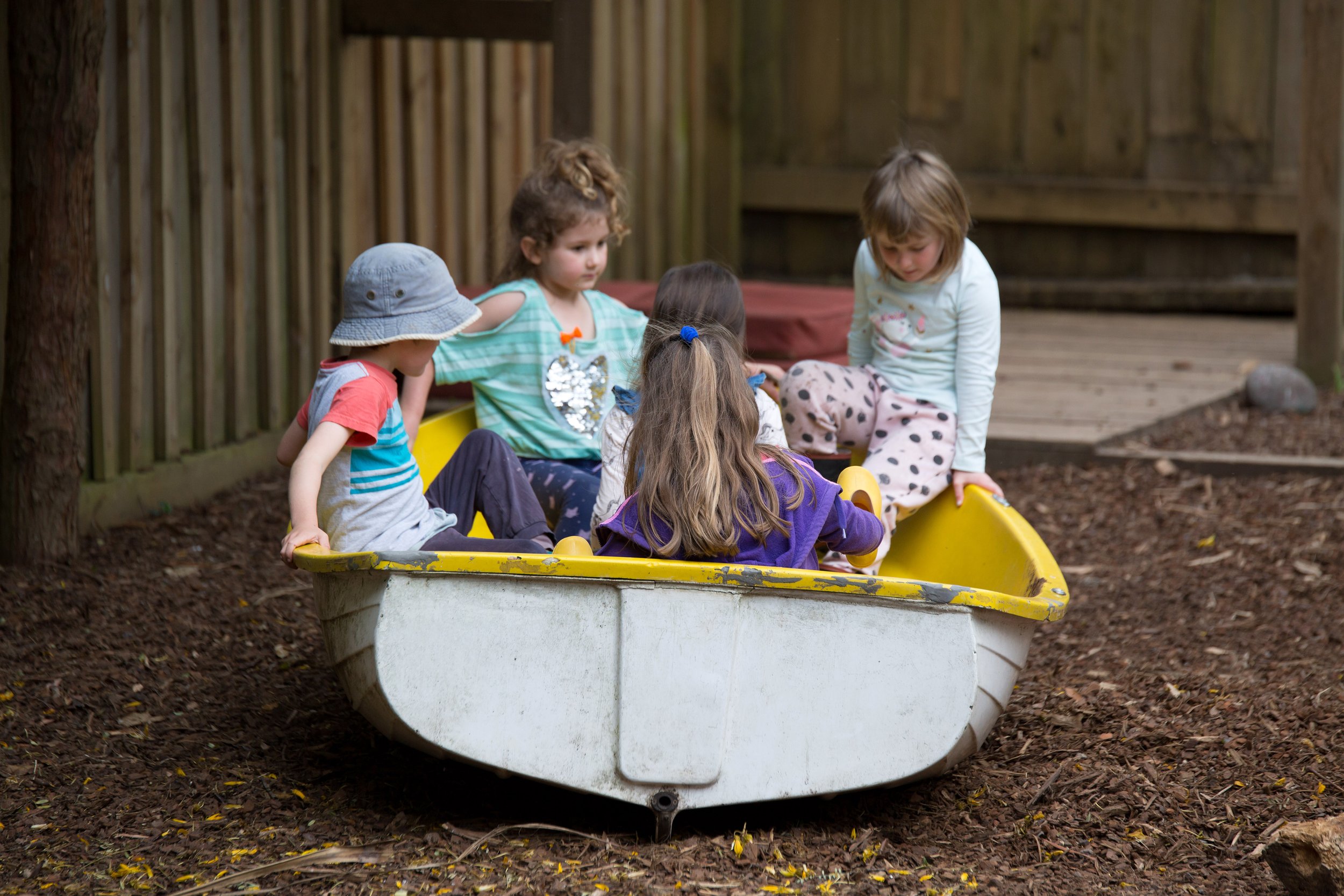
Early Childhood
In Steiner Waldorf education, the early childhood years—from birth to seven—are seen as a time for exploration, imitation, and sensory learning. This phase focuses on nurturing the child's physical development and fostering a sense of wonder, imagination, and joy. The learning environment is warm and home-like, allowing children to feel secure and free to explore the world at their own pace.
The curriculum is play-based and experiential, emphasising self-directed, imaginative play as a core activity that fosters creativity, problem-solving, and social skills. Through play, children develop motor skills, explore their surroundings, and learn to relate to others. Rhythm and repetition are key, providing a predictable structure that helps children feel grounded and calm.
Activities such as storytelling, circle time, singing, waiata, movement, baking, gardening, and handcrafts are central to the programme. These activities are rich in sensory experiences and help develop coordination, concentration, and emotional well-being. Kaiako model purposeful work, which children imitate, fostering a sense of rhythm and connection to their environment.
Overall, Steiner Waldorf early childhood education emphasises nurturing the child's physical body, imagination, and emotional growth through rhythm, play, and imitation. This approach lays a strong foundation for later academic, social, and emotional development.
Playgroups
Playgroups are a beautiful way to introduce Steiner Waldorf into your whānau life.
Steiner Waldorf playgroups are grounded in the understanding that young children learn best through imitation, active exploration, and imaginative play.
These early childhood sessions are designed to support the child’s natural development in a warm, unhurried, and home-like environment. Playgroups, or sometimes called Playcircles or nursery groups, offer a gentle transition from home life, allowing tamariki to explore the wider world alongside their parent or whānau.
Each session includes a rhythm of familiar activities such as free play indoors and outdoors, a morning or afternoon circle with songs and movement, shared kai, and a quiet story time.
The consistent structure and nurturing atmosphere help foster a sense of security and belonging. Through meaningful play and daily rhythms, tamariki are supported to develop social, emotional, and physical capacities in their own time, while parents and whānau are invited into a supportive community that values simplicity, connection, and the magic of childhood.
Playgroups are typically whānau led, and if you’d like to discover if there is a playgroup close to you, please visit here.
If you’d like support to start a playgroup in your community, please be in touch. Email the Early Childhood support network here.
No age has a deeper impact on the whole of life than the first years of childhood.
"During those first seven years, children develop their bodily foundation for life. They explore and experience the world with their senses and through meeting the other. These early encounters in life have a deep influence and long lasting effect on the making of their own being,” says Clara Aerts, coordinating member of IASWECE and co-producer of this film, which was filmed around the world. "The experiences that we make possible - or withhold - for our children at this age form the most elementary basis for their further lives and thus ultimately for the future of humanity.”
Whāia te mātauranga hei oranga mō koutou
Seek after learning for the sake of your wellbeing


